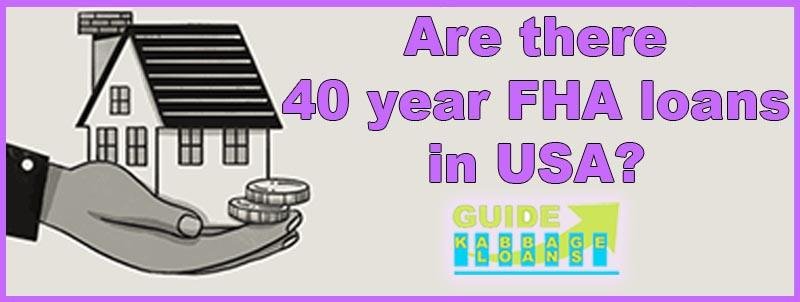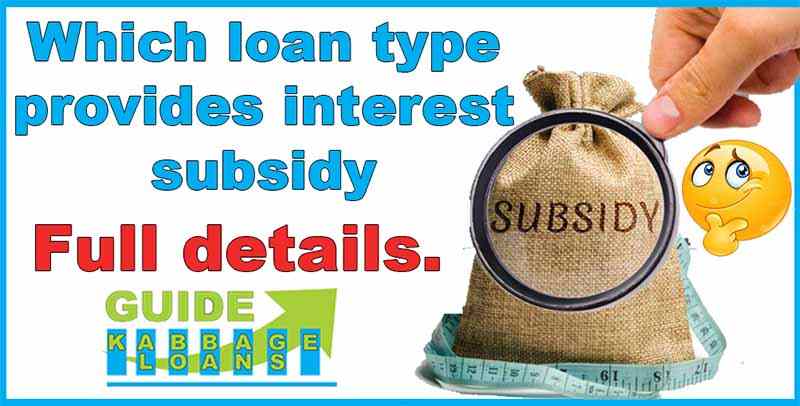Last updated on July 27th, 2024 at 06:28 am
If you’re a homeowner struggling to keep up with your mortgage payments, 40 year FHA loans might offer the financial relief you need. While not as common as the traditional 30-year term, this extended mortgage option can be a lifeline for those facing financial difficulties. In this article, we’ll delve into what 40-year FHA loans are, who qualifies for them, and how they can help reduce your monthly payments.
FHA loans and their terms
FHA loans, backed by the Federal Housing Administration, help people buy homes with low down payments and flexible credit requirements. You generally need a credit score of at least 580 to qualify for a 3.5% down payment, while scores between 500 and 579 require a 10% down payment. Loan amounts are limited by location to ensure affordability.
The 40-year term is exclusively available for loan modifications, not for new FHA loans. For purchasing new homes or refinancing, FHA loans usually come in 15- and 30-year terms.
FHA loans require an upfront mortgage insurance premium (1.75% of the loan) and monthly mortgage insurance payments. Typical loan terms are 15 or 30 years. The home must meet safety and livability standards, and borrowers need a stable income and employment history.

Does FHA Offer 40 Year Mortgage?
Yes, the Federal Housing Administration (FHA) has introduced the option for a 40-year mortgage term for certain loan modifications. This change, detailed in the Federal Register, aims to help borrowers who are struggling with their monthly payments by extending the term of their loans, thereby reducing the monthly payment amount.
This 40-year term is specifically for loan modifications and not for new FHA loans. For new home purchases or refinances, FHA loans typically offer 15- and 30-year terms.
(( For more detailed information, you can read the full document here. ))
Are There 40-Year FHA Loans in the USA?
Yes, 40-year FHA loans are now available in the USA, but they are specifically designed for loan modifications. This new option is aimed at helping homeowners who are facing financial difficulties by reducing their monthly mortgage payments, making homeownership more manageable and potentially preventing foreclosures
This extended term can significantly lower your monthly payments, giving you more breathing room financially.
Who is Eligible for a 40-year FHA Loan?
The 40-year FHA loan term is specifically designed for borrowers seeking loan modifications, rather than new loans.
Here’s who is eligible:
- Current FHA Borrowers: Only those who already have an FHA loan can apply for a 40-year loan modification. This option is not available for new FHA loan applicants.
- Facing Financial Hardship: Borrowers must be experiencing financial difficulties that impact their ability to make current mortgage payments. This could include a loss of income, unexpected expenses, or other financial challenges.
- Seeking Lower Monthly Payments: The primary goal of the 40-year loan modification is to lower monthly mortgage payments to make them more affordable. Borrowers looking to extend their loan term to reduce their payment amounts may be eligible.
- Loan in Good Standing: Typically, the loan should be in good standing or the early stages of delinquency. Borrowers should demonstrate a willingness and ability to meet the modified payment terms.
- Meeting FHA Guidelines: Borrowers must meet all other FHA guidelines for loan modifications, including demonstrating a stable income and the ability to make the adjusted payments.
This extended term is part of the FHA’s efforts to provide relief to struggling homeowners and prevent foreclosures by offering more manageable payment plans.
What is the maximum age for a 40-Year FHA Loan?
FHA loans, including the 40-year loan modification option, do not have a maximum age limit for borrowers. Instead, eligibility is based on financial criteria, the ability to repay the loan, and meeting the FHA’s other requirements. The focus is on the borrower’s financial situation rather than their age.
Does FHA Require Mortgage Insurance with 40-Year FHA Loans?
Yes, FHA requires mortgage insurance for 40-year FHA loans, just like with other FHA loans. Mortgage insurance is designed to protect the lender in case the borrower defaults on the loan. There are two types of mortgage insurance premiums (MIP) required for FHA loans:
- Upfront Mortgage Insurance Premium (UFMIP): This is a one-time fee that is typically 1.75% of the loan amount. It can be paid at closing or rolled into the loan amount.
- Annual Mortgage Insurance Premium (MIP): This premium is paid monthly and varies based on the loan term, loan amount, and loan-to-value (LTV) ratio. For a 40-year loan modification, borrowers will continue to pay this monthly premium as part of their mortgage payment.
Mortgage insurance is a key component of FHA loans, including the 40-year modification, ensuring that the loan program remains financially viable and continues to help homeowners.
How to Apply for a 40-Year FHA Loan?
Applying for a 40-year FHA loan involves a few key steps, primarily focused on loan modifications rather than new loans. Here’s how you can apply for a 40-year FHA loan modification:
- Eligibility Check:
- The 40-year term is generally available for loan modifications, which means it’s an option for existing FHA borrowers struggling to make payments.
- Ensure that you meet the FHA’s criteria for loan modification. This includes demonstrating financial hardship and having a mortgage that is in default or at risk of default.
- Contact Your Lender:
- Reach out to your current FHA-approved lender. They will provide you with the necessary forms and guide you through the application process.
- Discuss your situation and express your interest in modifying your loan to a 40-year term.
- Submit Required Documentation:
- Gather and submit all required documentation. This typically includes proof of income, tax returns, bank statements, and a hardship letter explaining your financial difficulties.
- Loan Modification Process:
- Your lender will review your application and financial situation to determine if you qualify for a 40-year loan modification.
- If approved, your loan terms will be adjusted to extend the repayment period to 40 years, which can lower your monthly payments.
- Approval and Finalization:
- Once your lender approves the modification, they will provide you with new loan documents to sign.
- Please review the terms carefully, sign the documents, and return them to your lender.
How Long Does It Take to Process a 40-Year FHA Loan Application?
The processing time for a 40-year FHA loan application typically ranges from 4 to 8 weeks. This timeframe includes submitting your application, undergoing initial review and underwriting, receiving approval, and completing the closing process.
The processing time for a 40-year FHA loan application can vary depending on several factors, including the lender’s workload, the borrower’s credit history, and the complexity of the loan application. Typically, the process can take anywhere from four to six weeks.

Can I Get a 40-Year FHA Loan if I Have Bad Credit?
Getting a 40-year FHA loan with bad credit can be challenging. FHA loans generally require a minimum credit score of 580 for a 3.5% down payment, and scores between 500 and 579 require a 10% down payment. While FHA guidelines do allow for lower credit scores compared to conventional loans, a 40-year term is typically not offered directly through FHA loan programs but might be available through specific loan modification programs.
If you have bad credit, you may face higher interest rates or need to provide a larger down payment. It’s crucial to discuss your situation with an FHA-approved lender to explore your options and find a solution that fits your financial situation.
FHA Seasoning Requirements for Loan Modification?
FHA seasoning requirements refer to the length of time a borrower must wait before they can refinance or modify their FHA loan. The FHA has specific seasoning requirements that must be met before a borrower can refinance or adjust their loan.
What Are the Benefits of a 40-Year FHA Loan Compared to Other Loans?
The main benefit of a 40-year FHA loan is that it can result in lower monthly payments compared to a 30-year loan. However, the downside is that a 40-year loan will result in paying more interest over the life of the loan. Borrowers should carefully consider their options and consult with a lender to determine the best loan term for their individual needs.
Comparing Interest Rates on 40-Year FHA Loans.
Interest rates for 40-year FHA loans are typically higher than those for 30-year loans. Borrowers should compare interest rates from different lenders to ensure they are getting the best rate possible.
Conclusion.
40-year FHA loans offer a potential solution for current FHA borrowers facing financial difficulties by extending their mortgage terms and lowering monthly payments. While not available for new loans, this modification can provide significant relief for homeowners struggling with their current payments. However, borrowers should carefully consider the increased total interest costs and consult with their lenders to ensure this option aligns with their long-term financial goals.
Faq’s
How do I qualify for a 40-year FHA loan?
To qualify for a 40-year FHA loan, you will need to meet certain eligibility requirements, such as having a steady income, a credit score of at least 580, and a debt-to-income ratio below 43%.
What are the interest rates for a 40-year FHA loan?
The interest rates for a 40-year FHA loan can vary depending on various factors such as the borrower's credit score, debt-to-income ratio, and the lender's current rates. In general, interest rates for 40-year FHA loans are typically higher than those for 30-year loans. Borrowers should compare interest rates from multiple lenders to ensure they are getting the best rate possible for their individual circumstances. It's essential to note that a lower interest rate can result in lower monthly payments and potentially significant savings over the life of the loan.
How much can I borrow with a 40-year FHA loan?
The amount you can borrow with a 40-year FHA loan will depend on several factors, including your income, credit score, and debt-to-income ratio. Generally, the maximum loan amount for a 40-year FHA loan is $356,362 in most areas of the United States.
What are the closing costs for a 40-year FHA loan?
The closing costs for a 40-year FHA loan will vary depending on the lender, but they typically include fees for appraisal, title search, title insurance, and other miscellaneous costs. On average, closing costs for an FHA loan can range from 2% to 5% of the loan amount.
Thanks for your visit.
(40 Year FHA Loans)
Disclaimer: The information provided in this article is for general informational purposes only and should not be considered financial advice. Consult with a qualified financial advisor or FHA-approved lender to assess your specific situation and eligibility for a 40-year FHA loan. Terms and conditions may vary, and lenders’ policies might change over time.





